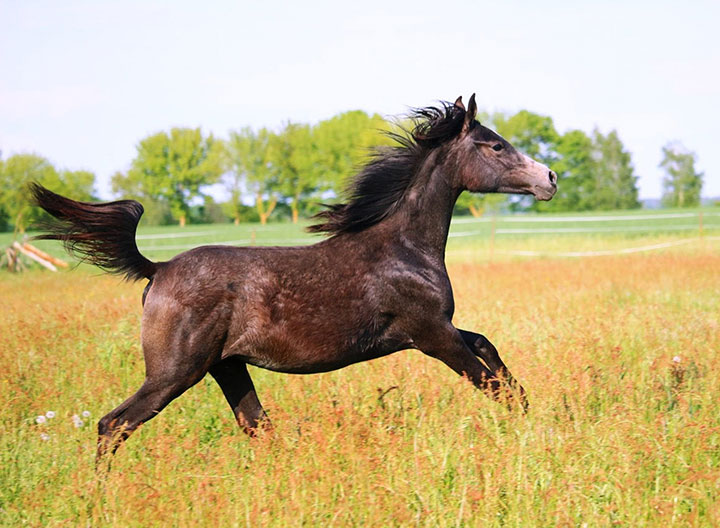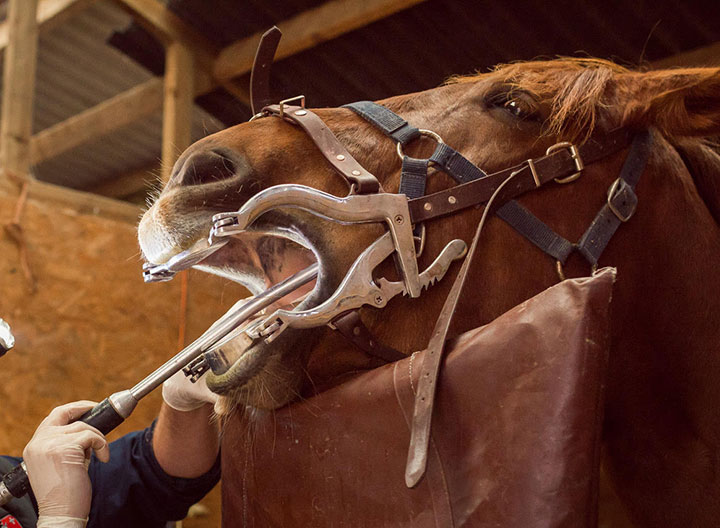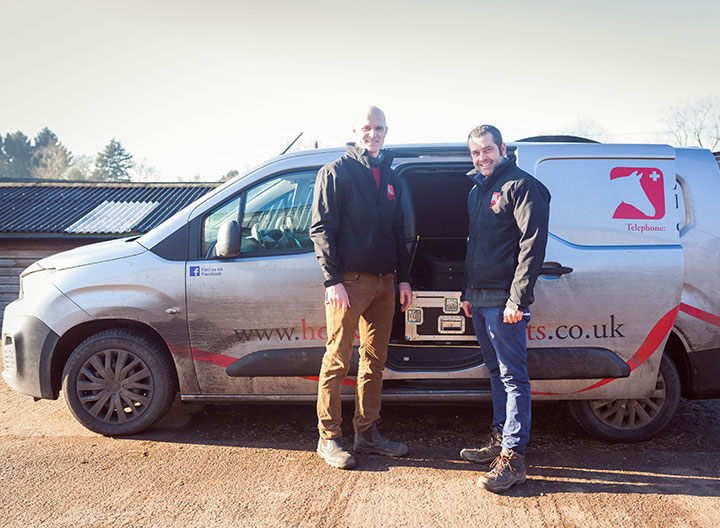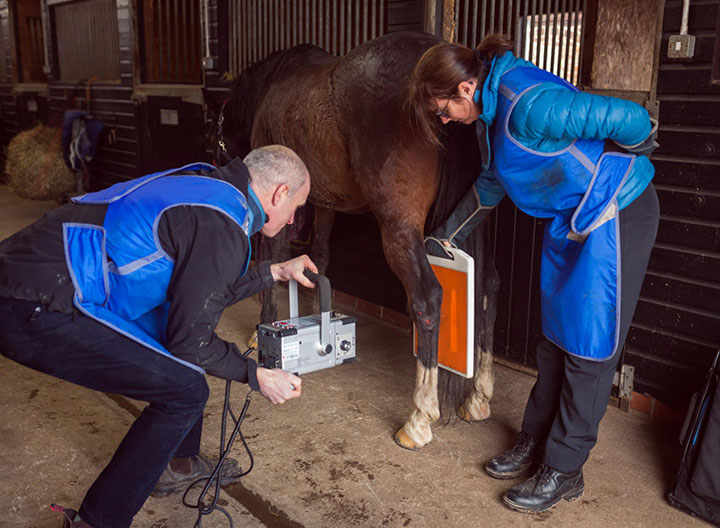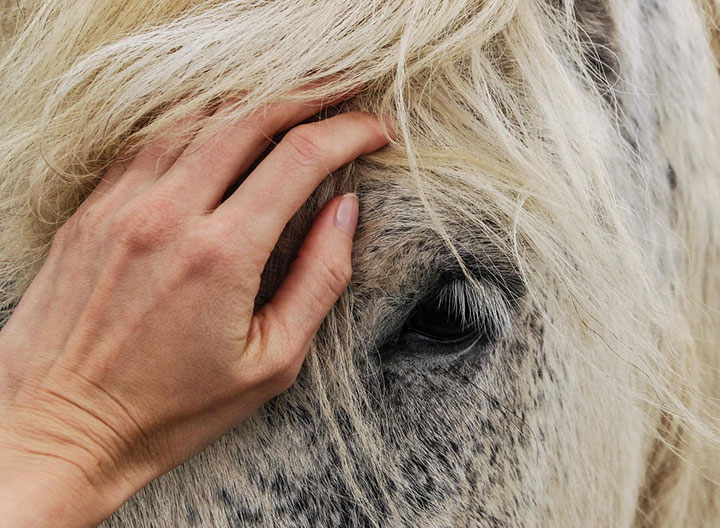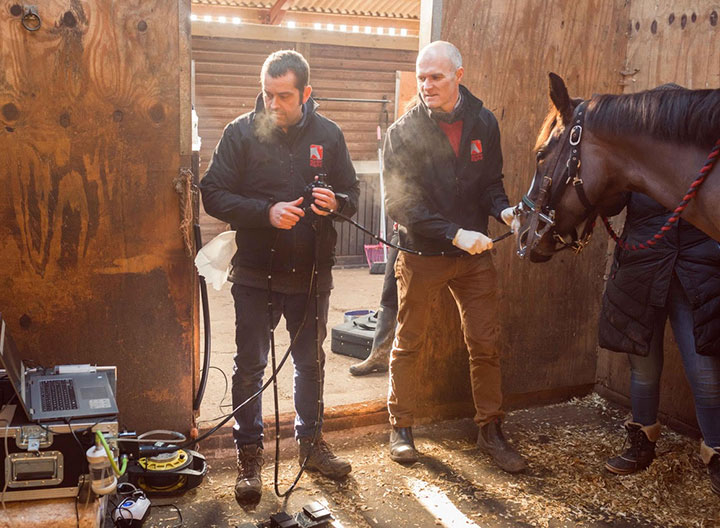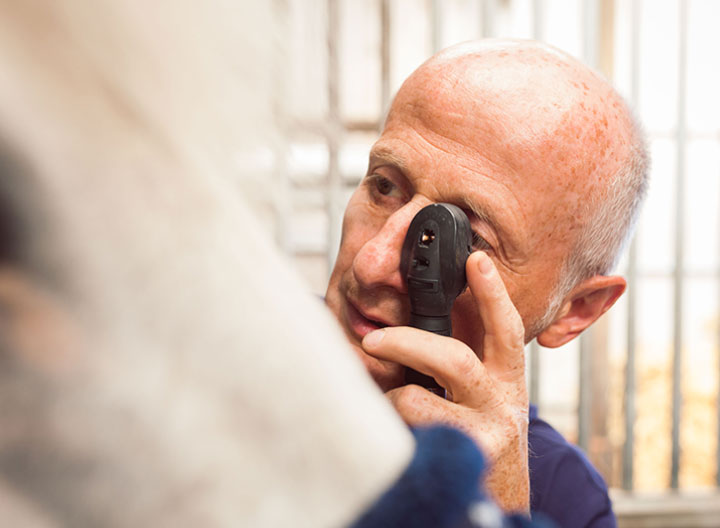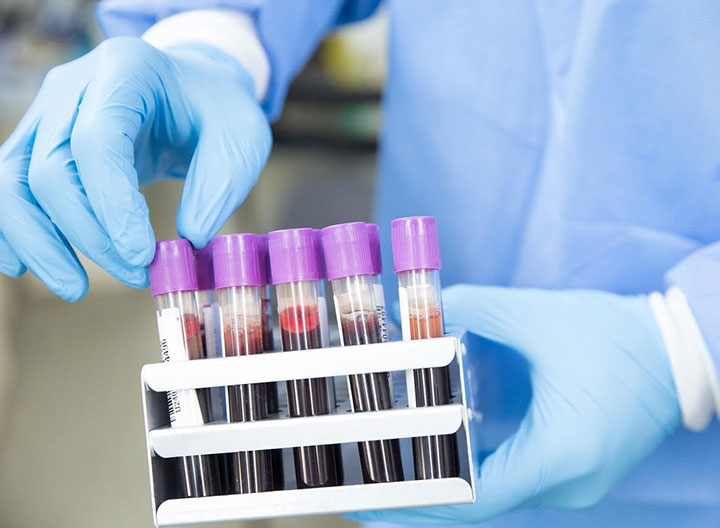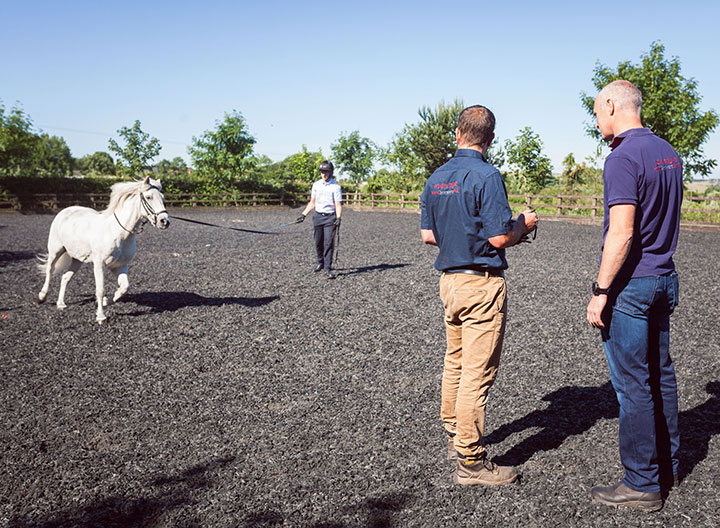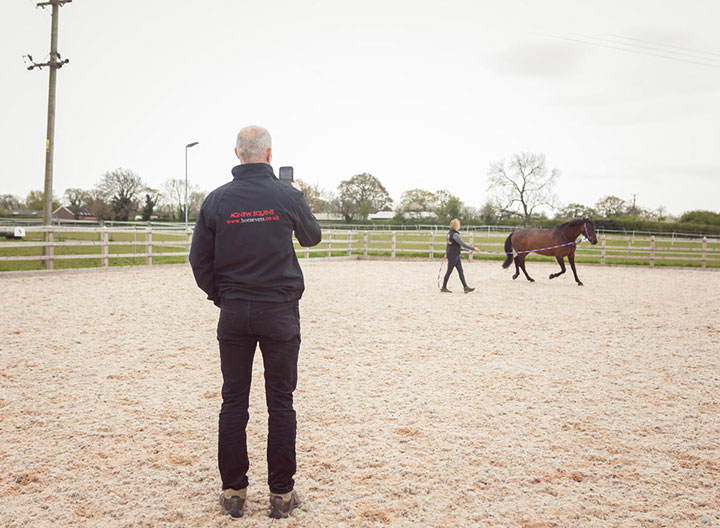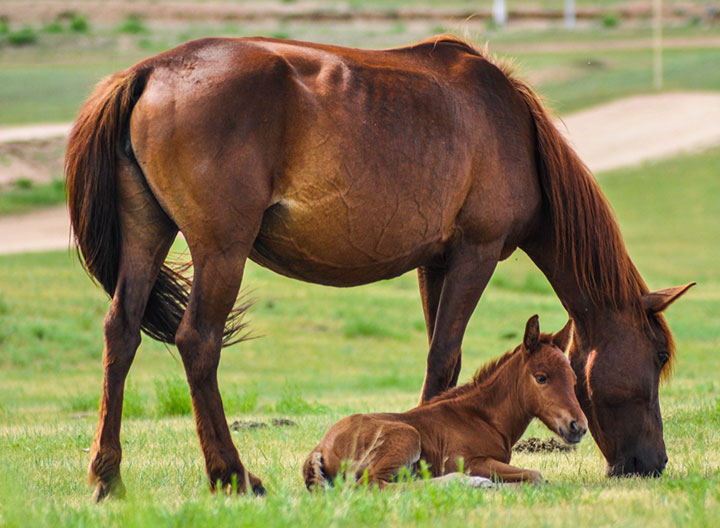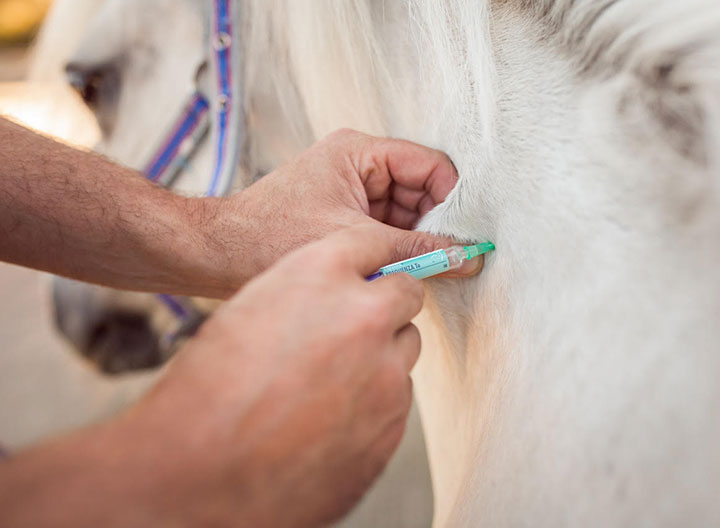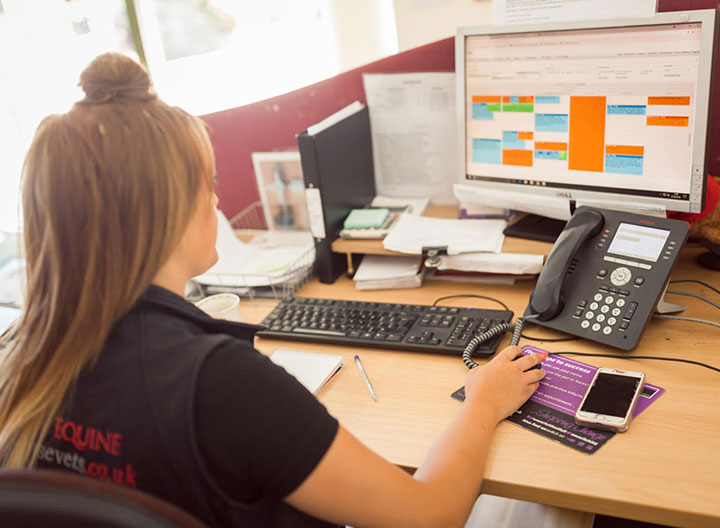Castrations
Our experienced vets come to your home stable to perform a castration procedure, removing the time & stress and any need to transport. Colts are generally castrated for 2 reasons; to prevent unwanted pregnancy, or to make them easier to handle and safer to run with other horses. We recommend spring or autumn as the best time for castrating, although exceptions can be made if necessary. In spring and autumn, flies are less of an issue than the summer, and by comparison it is less cold, wet & muddy than the winter – and both these scenarios increase the risk of infection.
As a practice we most commonly perform the castration with the colt standing. Castrations are usually performed under standing sedation but occasionally a general anaesthetic may be required for the procedure to be performed safely. Reasons for doing it down would be either size of the pony (i.e. Shetland), size of the testicles (too small), temperament of the horse (too risky for the vet) or if you have a Donkey.
There are two main ways to perform the castrate, either OPEN or CLOSED. This refers to whether or not we incise (cut) into the sack which goes around the testicle. In our practice we always perform the castration OPEN. This means your colt will be left with two incisions (holes) through which any blood etc can drain.
How to Prepare Your Horse Before the Operation
- We normally recommend that you starve your colt overnight and withhold water an hour before the operation.
- The operation will always be carried out in the morning and you should make sure you have the rest of the day free for regular checks on your horse.
- Make sure your horse is up to date with TETANUS vaccinations, if not we can start them the same day. The 2nd vaccination is given 4-6 weeks later.
- Put a fresh straw bed down in the morning of the operation.
The Procedure
The vet will always talk through the castration procedure with you at the time of the operation but the list below covers the main points.
The vet will:
- Listen to the heart
- Check there are two testicles present
- Sedate the colt
- Apply tail bandage
- Administer antibiotics, painkillers and tentanus antitoxin
- Clear the scrotum
- Inject local anaesthetic into each testicle and cord
- Clean the scrotum again
- Using sterile gloves and instruments, cut the skin and expose the testicle
- The cord will be emasculated (special instrument to prevent bleeding and remove the testicle)
- The same will be performed for both testicles
- The wound is deliberately left open to allow for drainage
After the operation your horse will remain sedated for approximately an hour, and he will be able to eat something when properly awake. The tail bandage can be removed within 2 hours of the procedure. We usually recommend in-hand walking for the same day and turnout can start from the following day in order to move around and to help reduce swelling. The newly gelded horse should remain separate from mares for 6 weeks. We don’t recommend worming your horse 1 week either side of your colt being gelded. A first tetanus vaccination can be given at the same time as your colt is castrated, and the second vaccination will be due in 4-6 weeks time. A tetanus antitoxin injection is always given to give immediate protection against this potentially fatal disease.
Risks
Castration is generally regarded as being a routine procedure, and in the vast majority of cases it is both straightforward and uncomplicated. However, it should not be forgotten that it is an invasive surgery and occasionally complications will occur. If you have any concerns after the procedure we will always come out to you, and these follow up appointments are part of your castration price with us.
Risks may include:
Bleeding from the incisions: Dripping from the incisions can be normal for 24-48 hours as long as you can count the drips of blood. If it is a steady stream of blood then contact the vet.
Swelling: Again this can be normal for the first few days but it should reduce with turnout. If not contact the vet.
Something hanging down from the incisions: This can be a remnant of the cord or fat from the inside of the horse’s belly or very rarely intestine from the horse’s belly. In any situation, contact the vet.
Infection: This would normally be seen about a week after the operation. The horse may be lame or off colour or just have a very swollen scrotum. Always contact the vet if you are concerned.
Colic: Contact us immediately if your horse is off colour or has signs of colic after a colt castrate.
If you are concerned about any of these complications in your gelding ALWAYS RING THE VET FOR ADVICE.
If you have booked for your colt to be castrated – download the Colt Castration Preparation and Aftercare guides.

